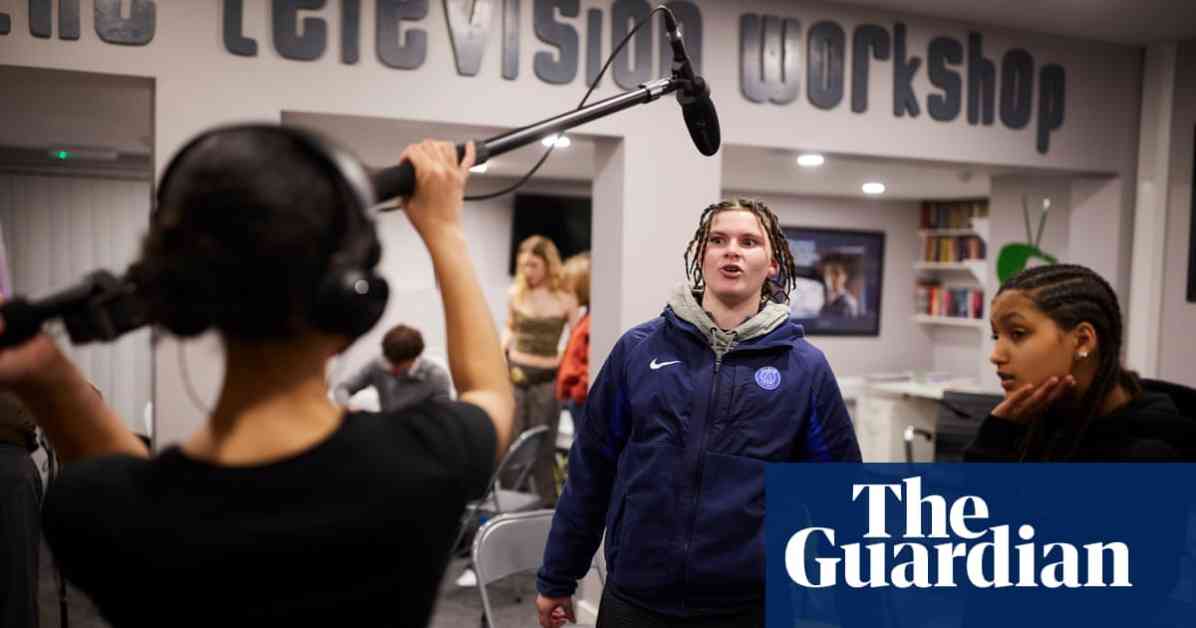In a quiet corner of Nottingham lies a hidden gem that has been shaping the UK’s acting landscape for over four decades. The Television Workshop, a renowned acting program, has produced some of the most recognizable faces in film and television, from stars of Bridgerton and Game of Thrones to Line of Duty and Downton Abbey. Its alumni list reads like a who’s who of British acting talent, with names like Samantha Morton, Vicky McClure, and Jack O’Connell gracing its ranks.
The Workshop, nestled in an unassuming room among former industrial buildings, offers 260 coveted places to aspiring actors. What sets this program apart is its commitment to talent above all else. Auditions are rigorous, and once accepted, students undergo rigorous training in discipline and professionalism necessary for success in the industry. However, what truly distinguishes the Workshop is its dedication to inclusivity.
Unlike many prestigious theater programs and drama schools, the Workshop does not turn away students based on their ability to pay. This commitment to accessibility has paved the way for students from all walks of life to pursue their dreams. Vicky McClure, a Workshop alumna who found fame in This is England, credits the program for providing her with opportunities that shaped her career. She emphasizes the impact of the Workshop’s training style and the fact that it was free of charge, a rare privilege in the competitive world of acting.
The Workshop’s alumni, including McClure, Samantha Morton, and filmmaker Shane Meadows, have remained steadfast supporters of the program. Their success stories serve as a testament to the Workshop’s impact on emerging talent. The recent success of the BBC’s Sherwood, featuring a host of Workshop graduates, underscores the program’s ongoing influence on the industry.
Two young actors, Oliver Huntingdon and Bill Jones, both 24, echo the sentiment shared by many Workshop alumni. They attribute their growth as actors to the supportive environment that allowed them to explore their talents freely. Jones, who joined the Workshop at the age of seven, emphasizes the authenticity and variety of talent nurtured by the program. For him, the Workshop’s ability to preserve each actor’s unique identity sets it apart from traditional drama schools.
Despite its stellar reputation and track record of success, the Workshop faces financial challenges that threaten its future. Director Ali Rashley highlights the stark reality of dwindling funding from broadcasters, which has been the program’s primary source of support. Running costs amount to £120,000 annually, a modest sum compared to drama school fees. Rashley emphasizes the importance of providing free places to students who cannot afford tuition, a principle that remains at the core of the Workshop’s mission.
The Workshop’s resilience in the face of financial adversity is a testament to its commitment to nurturing talent from diverse backgrounds. Notable figures in the industry, such as Kenneth Branagh, have stepped up to support the program through generous donations. These contributions enable the Workshop to continue offering opportunities to aspiring actors who might otherwise be overlooked.
The challenges faced by the Workshop reflect broader issues of representation and access within the creative industry. Figures show a stark imbalance in the representation of working-class actors, with only 8% of creatives in film and TV coming from working-class backgrounds. The industry’s reliance on actors with a privileged upbringing perpetuates a cycle of exclusion that limits opportunities for aspiring talent from diverse socio-economic backgrounds.
Shaheen Baig, a casting director and trustee of the charity Open Door, emphasizes the importance of supporting young creatives who lack access to traditional training programs. She recognizes the vital role organizations like the Workshop play in nurturing talent and providing opportunities to those who might otherwise be overlooked. Baig’s insights underscore the urgency of addressing systemic barriers that hinder diversity and inclusion in the creative industry.
As the Workshop continues to champion inclusivity and talent development, its impact on the acting landscape remains undeniable. The program’s unwavering commitment to providing opportunities to aspiring actors from all backgrounds serves as a beacon of hope in an industry plagued by inequality. By supporting initiatives that prioritize inclusivity and diversity, we can create a more equitable and representative creative landscape for future generations.

